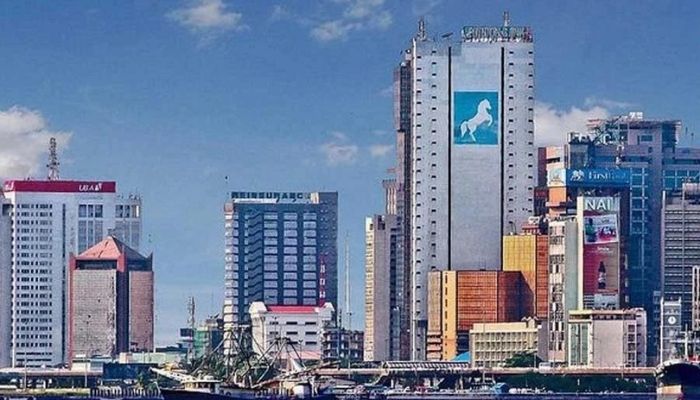…N1.7trn raised by 16 lenders in 2024 as recapitalisation intensifies
Nigeria’s banking industry is projected to sustain its growth momentum, with total assets and contingents expected to hit N242.3 trillion ($151.4 billion at N1,600/$) by December 31, 2025, according to a new report by Agusto & Co.
This follows a 44.9 per cent year-on-year expansion to N186.6 trillion ($121.5 billion at N1,536/$) as of 31 December 2024, Agusto & Co. said in its 2025 Nigerian Banking industry report.
The sector has demonstrated strong resilience amid ongoing macroeconomic challenges, both globally and domestically. Despite funding pressures from high interest rates and the Central Bank of Nigeria’s (CBN) contractionary monetary policy, the industry remained liquid, recording a 59.4 per cent liquidity ratio at the end of 2024 (FYE 2023: 43.5%). The rating agency expects this ratio to surpass 6 per cent by year-end 2025, buoyed by favourable, albeit declining, treasury yields.
“Innovative funding strategies are becoming increasingly critical,” Agusto & Co. noted, highlighting the surge in commercial paper issuances, approximately N750 billion issued in the first seven months of 2025 alone. The firm anticipates further issuances as interest rates begin to taper later in the year.
Read also: Jaiz bank reports 121% surge in profit to ₦24.44bn,
Recapitalisation Momentum Builds Ahead of 2026 Deadline
Following the CBN’s March 2024 directive on minimum paid-up capital requirements effective by March 31, 2026, recapitalisation efforts have accelerated. Sixteen banks raised about N1.7 trillion in 2024, with an additional N800 billion secured in the first seven months of 2025. As of July 31, 2025, eight banks have already met the new capital requirements, although some transactions are pending verification by the CBN and the Securities and Exchange Commission (SEC).
Analysts at Agusto & Co. commended the growing confidence of domestic investors, who contributed the bulk of capital raised in the last 19 months. The firm projects a further N900 billion in capital inflows by year-end 2025, enhancing banks’ buffers against emerging risks and supporting medium-term growth.
Asset Quality Weakens Amid Currency Pressure
Non-performing loans (NPLs) rose to 5.2 per cent of total industry loans as of December 31, 2024 (FY 2023: 4.0%), reflecting credit deterioration and the naira’s 40.4 per cent depreciation during the year. Some of these impaired loans were temporarily shielded under regulatory forbearance measures and classified under stage 2 assets.
However, with the CBN’s withdrawal of forbearance in June 2025, full reclassification and provisioning are now required. Agusto & Co. anticipates a short-term increase in the industry’s impaired loan ratio to 6.9 per cent as banks adjust. Nonetheless, resolution efforts, including accelerated write-offs (enabled by regulatory waivers), are expected to reduce the ratio ahead of 31 December 2026.
“Capital raising activities will also help resolve breaches of the single obligor limit and support asset quality improvements,” the report added.
Profitability to Dip in 2025, Recovery Expected in 2026
The high-yield environment and steep naira depreciation supported industry performance in FY 2024. However, profitability was moderated by the CBN’s zero net open position directive. In FY 2025, the analysts project a 19.2 per cent decline in profit before tax, with pre-tax return on average equity falling to 27 per cent, from 48.2 per cent in FY 2024.
The decline will be driven by higher impairment charges, particularly as banks accelerate provisioning and write-offs tied to previously forborne loans. Additionally, lower foreign currency revaluation gains are expected to weigh on earnings.
Despite these pressures, Agusto & Co. maintains a “stable” outlook on the Nigerian banking industry. Profitability is projected to rebound in FY 2026 as banks fully deploy newly raised capital and the impact of impairment charges subsides.









